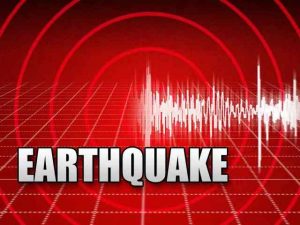A Business Guide to Earthquake Insurance
July 17, 2019
 Earthquakes occur almost every day in Los Angeles, San Francisco, Seattle and Portland with many not large enough to even be noticed. Many businesses may not give earthquake insurance much thought, but is your company prepared if a large earthquake caused devastating damage to your business’ property? Even if you do not own your building, do you have the resources to replace your business personal property (machinery, computers, etc.) if it were damaged or destroyed in an earthquake? If you are in the process of business planning or working through your business’ insurance renewal, earthquake coverage may be wise to consider.
Earthquakes occur almost every day in Los Angeles, San Francisco, Seattle and Portland with many not large enough to even be noticed. Many businesses may not give earthquake insurance much thought, but is your company prepared if a large earthquake caused devastating damage to your business’ property? Even if you do not own your building, do you have the resources to replace your business personal property (machinery, computers, etc.) if it were damaged or destroyed in an earthquake? If you are in the process of business planning or working through your business’ insurance renewal, earthquake coverage may be wise to consider.
Why You Need Earthquake Insurance
- The standard business insurance policy does not cover damage resulting from an earthquake. In fact, damage due to earthquake is specifically excluded on most policies. You must either purchase an earthquake coverage endorsement or a separate earthquake insurance policy.
- You can’t count on the federal government to help – any financial aid they provide will be in the form of a loan.
What Earthquake Insurance Can Insure
- Buildings
- Business personal property
- Loss of Business Income
- Ongoing expenses (employee wages, mortgage and lease payments, etc.)
- Earthquake Sprinkler Leakage
- Betterment or Repairs required by local ordinance or law
We recommend every business complete a short risk assessment that includes the following questions:
- Do you operate in a high risk earthquake area?
- What would be your potential loss?
- Do you have the resources to repair or re-build if there is damage for which you have no insurance coverage?
- Can you minimize the loss through building retrofits or additional construction?
- What is the cost of earthquake insurance?
If you do purchase earthquake insurance, consider insuring “at replacement cost” (covers the costs of rebuilding or repairing your building and damaged business personal property) instead of “at market value” (estimated value in its current condition). Although insuring at market value may be more affordable, you are at risk of having incomplete coverage as the market value may be less than the cost of rebuilding or repairing.